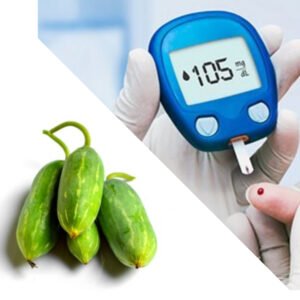Heart attacks are the leading cause of death worldwide. This is affecting millions of people each year. Despite medical advancements, cardiovascular diseases continue to pose significant health risks. A heart attack, also known as a myocardial infarction, occurs when blood flow to the heart is obstructed, leading to severe damage or even death. The main cause of heart attacks is the build-up of fatty deposits in the arteries, which restricts blood flow. Several lifestyle choices and medical conditions can increase the risk.
By understanding the causes, recognizing the symptoms, and implementing preventive measures, individuals can significantly reduce their chances of experiencing this life-threatening event. This article explores the essential aspects of heart attacks, including causes, symptoms, prevention, and lifestyle modifications for a healthier heart.

Causes of heart attacks
The most common cause of CAD (coronary artery disease) is atherosclerosis. In this condition, fatty deposits, or plaques, accumulate along the walls of the arteries, restricting blood flow and increasing the likelihood of a blockage. Heart attacks primarily occur due to coronary artery disease (CAD), a condition in which the arteries responsible for supplying blood to the heart become narrowed or blocked over time.
High blood pressure, also known as hypertension, plays a significant role in heart attacks as it exerts excessive pressure on the artery walls, potentially causing damage that leads to plaque buildup. Elevated cholesterol levels, particularly high levels of low-density lipoprotein (LDL) cholesterol, also contribute to plaque formation, further exacerbating the risk of artery blockage.
Diabetes is another major risk factor, as high blood sugar levels can lead to damage in the blood vessels, making them more susceptible to narrowing and blockages. Obesity and an unhealthy diet rich in processed foods, trans fats, and excessive sugar can lead to various complications, including high cholesterol, hypertension, and diabetes, all of which significantly raise the chances of suffering a heart attack.
Smoking is a leading cause of heart disease as well, as it introduces harmful chemicals into the body that contribute to inflammation and clot formation within the arteries. Additionally, a sedentary lifestyle can weaken the heart and make it more prone to cardiovascular issues. Stress and anxiety are often overlooked but can have a profound impact on heart health by raising blood pressure and increasing the likelihood of unhealthy coping mechanisms such as overeating, excessive alcohol consumption, and smoking.
Key Symptoms of Heart Attack
The Warning signs of a heart attack can be different between life and death. Chest pain or discomfort is one of the most commonly reported symptoms. This pain feels like a squeezing, burning, or pressure-like sensation and radiates to other body parts, such as the arms, neck, jaw, or back. Shortness of breath is another critical symptom, with individuals finding it difficult to breathe even when at rest. Some people experience nausea and vomiting, often accompanied by cold sweats, which may be mistaken for other medical conditions.

Pain in other parts of the body, including the shoulders, upper abdomen, or back, may not be immediately associated with a heart attack but can be a warning sign, particularly in women who often experience atypical symptoms.
Prevents of Heart Attack
Avoiding processed foods, trans fats, excessive sugar, and high-sodium meals also helps prevent conditions such as hypertension and high cholesterol. Taking proactive steps to reduce the risk of a heart attack is crucial for maintaining heart health. One of the most effective ways to lower the chances of experiencing a heart attack is to maintain a healthy diet.
Consuming a balanced diet that includes a variety of fruits, vegetables, whole grains, and lean proteins can provide essential nutrients and promote cardiovascular health. Incorporating heart-healthy foods such as nuts, fish rich in omega-3 fatty acids, and olive oil into daily meals can be beneficial in reducing inflammation and improving heart function.
Physical Activity and Heart Health
Strength training and flexibility exercises further contribute to overall cardiovascular well-being. Managing stress levels effectively is essential. Chronic stress can take a toll on the heart. Relaxation techniques such as yoga, meditation, and deep breathing exercises help alleviate stress and reduce blood pressure. Engaging in hobbies and activities that bring joy can also serve as effective stress relievers.
Regular physical activity is another key component of heart attack prevention. Engaging in at least 40 minutes of moderate exercise, such as walking, cycling, or swimming, four days a week can strengthen the heart and improve circulation. Strength training and flexibility exercises further contribute to overall cardiovascular well-being.
Essential Health Measures to Prevent Heart Attacks
Maintaining a healthy weight also plays a significant role in heart health. Body weight also places additional strain on the heart and increases the likelihood of developing cardiovascular issues. Controlling blood pressure and cholesterol levels is another crucial aspect of heart attack prevention. Regular monitoring of blood pressure and cholesterol can help identify potential risks early on, allowing for timely intervention. Following a doctor-prescribed plan that includes medication, dietary adjustments, and lifestyle changes can help keep hypertension and high cholesterol under control.
Lifestyle Changes for a Healthy Heart
Alcohol intake is equally important, as excessive alcohol consumption can lead to high blood pressure and elevated cholesterol levels. Quitting smoking and limiting alcohol consumption are essential for heart health. Smoking cessation is one of the most significant steps a person can take to reduce their risk of a heart attack, as tobacco use is a major contributor to heart disease.
Seeking professional help or joining support groups can be beneficial for individuals struggling to quit smoking. It is recommended that women consume no more than one alcoholic drink per day and men no more than two drinks per day to maintain a healthy heart.
Final Thoughts
Prioritizing a balanced diet, regular exercise, stress management, and avoiding harmful habits such as smoking and excessive alcohol consumption can contribute to overall cardiovascular health. Taking proactive steps today can lead to a healthier, longer, and more fulfilling life, free from the devastating effects of a heart attack.
Heart attacks are a serious health concern, but they are largely preventable with the right lifestyle choices and medical care. By understanding the underlying causes, recognizing the warning signs, and making heart-healthy choices, individuals can significantly reduce their risk of experiencing a heart attack.




